
PRACOVNÉ MIESTA PRE LEKÁROV Sachsen-Anhalt - Nemecko
PRACOVNÉ MIESTA PRE LEKÁROV Sachsen-Anhalt - Nemecko
| Lekár | Rezidentný lekár | Lekár špecialista | Lekár primár |
|---|---|---|---|
| Všeobecné lekárstvo | 0 | 0 | 0 |
| Vnútorné lekárstvo | 0 | 0 | 0 |
| Pneumológia a ftizeológia | 0 | 0 | 0 |
| Kardiológia | 0 | 0 | 0 |
| Gastroenterológia | 0 | 0 | 0 |
| Endokrinológia | 0 | 0 | 0 |
| Reumatológia | 0 | 0 | 0 |
| Angiológia | 0 | 0 | 0 |
| Nefrológia | 0 | 0 | 0 |
| Hematológia a transfúziológia | 0 | 0 | 0 |
| Radiačná onkológia | 0 | 0 | 0 |
| Geriatria | 0 | 0 | 0 |
| Neurológia | 0 | 0 | 0 |
| Dermatovenerológia | 0 | 0 | 0 |
| PediatriePediatria | 0 | 0 | 0 |
| Psychiatria | 0 | 0 | 0 |
| Fyziatria, balneológia a liečebná rehabilitácia | 0 | 0 | 0 |
| Anestéziológia a intenzívna medicína | 0 | 0 | 0 |
| Chirurgia | 0 | 0 | 0 |
| Cievna chirurgia | 0 | 0 | 0 |
| Cievna chirurgia | 0 | 0 | 0 |
| Hrudníková chirurgia | 0 | 0 | 0 |
| Detská chirurgia | 0 | 0 | 0 |
| Ortopédia | 0 | 0 | 0 |
| Neurochirurgia | 0 | 0 | 0 |
| Oftalmológia | 0 | 0 | 0 |
| Gynekológia a pôrodníctvo | 0 | 0 | 0 |
| ORL | 0 | 0 | 0 |
| Urológia | 0 | 0 | 0 |
| Rádiológia | 0 | 0 | 0 |
| Radiačná onkológia | 0 | 0 | 0 |
| Patologická anatómia | 0 | 0 | 0 |
| Urgentná medicína | 0 | 0 | 0 |
| Pracovné lekárstvo | 0 | 0 | 0 |
| Detská psychiatria | 0 | 0 | 0 |
| Zubné lekástvo | 0 | 0 | 0 |
| RMO | 0 | 0 | 0 |
| Psychosomatická medicína | 0 | 0 | 0 |
| Nukleárna medicína |
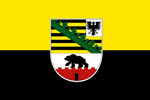
Interested in learning more about Sachsen-Anhalt? Click below to read the description and find out more about:
Sachsen-Anhalt - Nemecko

Interested in learning more about Sachsen-Anhalt? Click below to read the description and find out more about:
Sachsen-Anhalt is a landlocked state of Germany, having borders with the state of Niedersachsen, Brandenburg, Sachsen and Thüringen. By size, it is the 8th largest state in Germany, and by population the 10th largest. Its capital is Magdeburg.

Magdeburg

Hundertwasserhaus Magdeburg
In the north, the Sachsen-Anhalt landscape is dominated by the North German Plain. The old Hanseatic towns Salzwedel, Gardelegen, Stendal and Tagermünde are located in the sparsely populated Altmark.


Salzwedel


Gardelegen

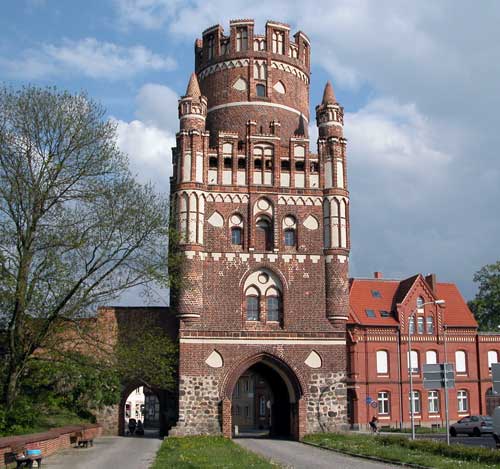
Stendal
The Colbitz-Letzlingen Heath and the Drömling near near Wolfsburg mark the transition between the Altmark region and the Elbe-Börde-Heath region with its fertile, sparsely wooded Magdeburg Börde. Notable towns in the Magdeburg Börde are Haldensleben, Oschersleben, Wanzleben, Schönebeck, Aschersleben and the state capital city Magdeburg.

Haldensleben

Oschersleben, Wanzleben

Aschersleben
The Harz Mountains are located in the south-west, comprising the Harz National Park, the Harz foreland and the Mansfeld Land. The highest mountain of the Harz is Brocken, with an elevation of 1,141 meters. In this area, one can find the towns of Halberstadt, Wernigerode, Thale, Eisleben and Quedlinburg.

Halberstadt

Wernigerode

Eisleben


Quedlinburg
In the wine-growing area Saale-Unstrut are the towns of Zeitz, Naumburg (Saale), Weißenfels and Freyburg (Unstrut) are located on the rivers Saale and Unstrut in the south of the state.

Schloss Moritzburg Zeitz
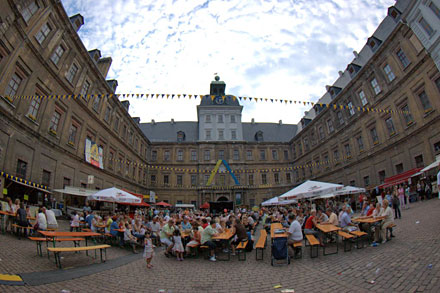
Weißenfels
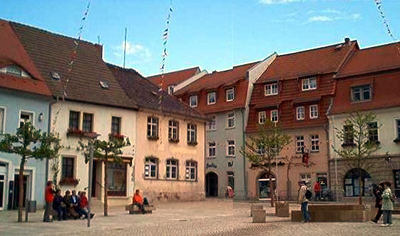
Freyburg (Unstrut)


Otto the Great, Quedlinburg


Martin Luther, Wittenberg



Georg Frideric Handel, Georg Philipp Telemann, Johann Sebastian Bach
The Harz Mountains and Brocken peak are steeped in legend, and were a source of fascination even to Johann Wolfgang von Goethe and Heinrich Heine in their time, prompting them to explore the region. Goethe set many of the scenes in ‘Faust’ in the Harz Mountains, such as the Walpurgis Night celebrations, which are played out on the Brocken. With his ‘Harz Journey’, Heine erected a literary monument to the region. Many footpaths in the Harz are named in honor of the two great German poets, and especially way marked.


Faust and Mephistopheles in the Harz Mountains, Walpurgis Night
The chemical industry is quite important, with almost 25,500 employees across 214 plants in 2010. One of the biggest chemical producing areas can be found around the city of Bitterfeld-Wolfen. Because of the chemical industry, Saxony-Anhalt attracts more foreign direct investments than any other state in eastern Germany.



Baumkuchen, Halloren chocolate
One of Magdeburg´s most impressive buildings in the Lutheran Cathedral of Saints Catherine and Maurice with a height of 104 m, making it the highest church building of eastern Germany. It is notable for its beautiful and unique sculptures, especially the ``Twelve Virgins`` at the Northern Gate, the depictions of Otto I the Great and his wife Editha as well as the statues of St Maurice and St Catherine. The predecessor of the cathedral was a church built in 937 within an abbey, called St. Maurice. Emperor Otto I the Great was buried here beside his wife in 973. St. Maurice burnt to ashes in 1207. The exact location of that church remained unknown for a long time. The foundations were rediscovered in May 2003, revealing a building 80m long and 41 m wide.
The construction of the new church lasted 300 years. The cathedral of Saints Catherine and Maurice was the first Gothic church building in Germany. The building of the steeples was completed as late as 1520.
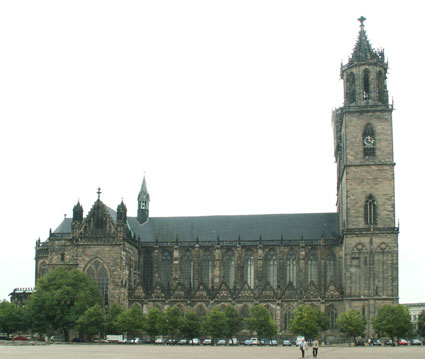


Magdeburg Cathedral, Saint Maurice, Three wise virgins
- The Magdeburg Reiter, the first equestrian sculpture north of the alps. It probably depicts the Emperor Otto I.

- Town hall (1698). This building had stood on the market place since the 13th century, but it was destroyed in the Thirty Years' War; the new town hall was built in a Renaissance style influenced by Dutch architecture. It was renovated and re-opened in Oct 2005.

- Rotehorn-Park

- Elbauenpark, containing the highest wooden structure in Germany.

- The Gruson-Gewächshäuser, a botanical garden within a greenhouse complex.
















